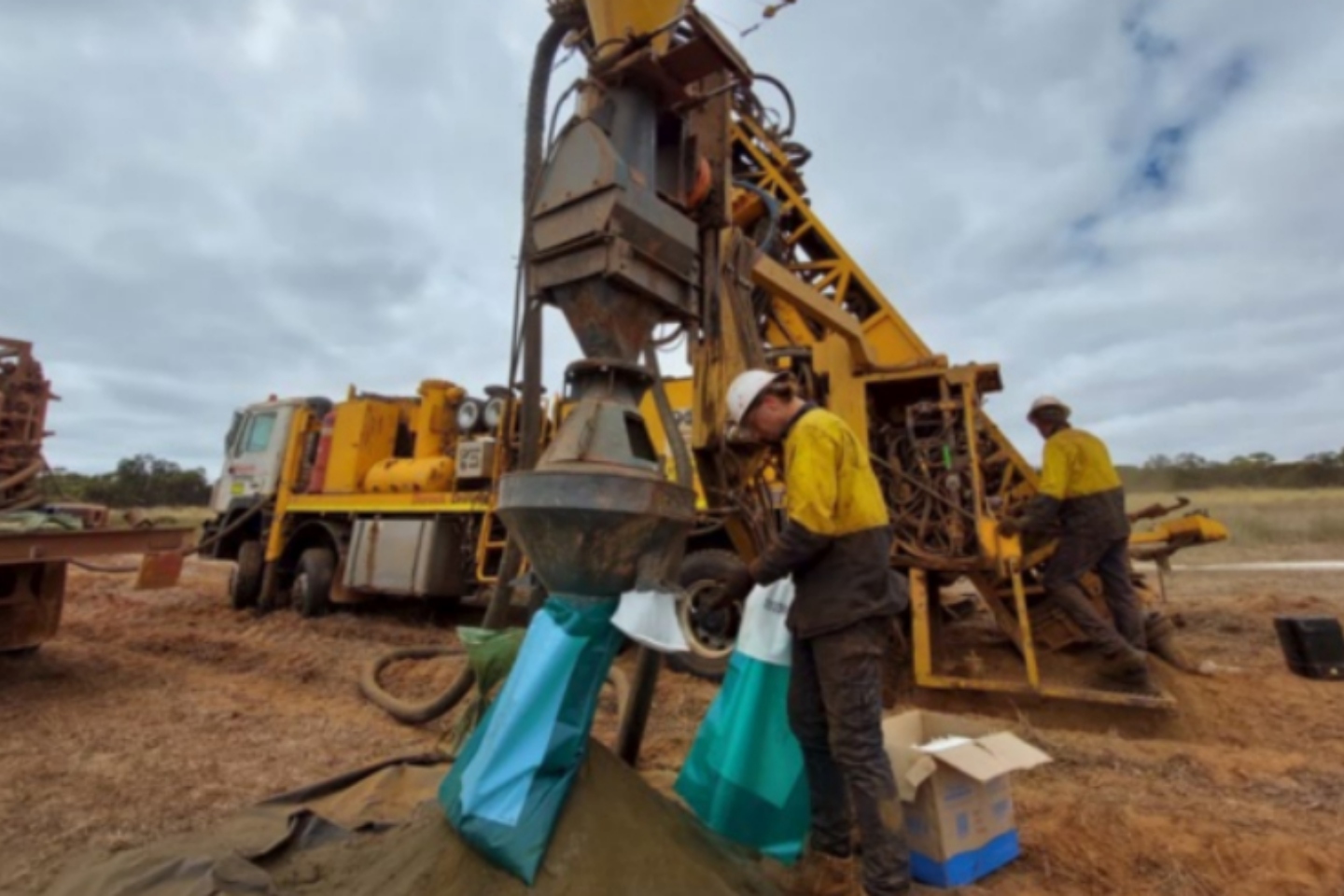The third and final batch of assay results from ChemX Materials’ 2023 drilling campaign at its Jamieson Tank manganese deposit on South Australia’s Eyre Peninsula have landed, including a headline 16m hit going 17.9 per cent manganese from 17m. The results will help bolster a maiden mineral resource estimate for the Perth-based high-purity critical materials company.


The third and final batch of assay results from ChemX Materials’ 2023 drilling campaign at its Jamieson Tank manganese deposit on South Australia’s Eyre Peninsula have landed, including a headline 16m hit going 17.9 per cent manganese from 17m.
Management says the results reveal significant manganese intercepts near surface and extend to depth and describes its latest discoveries as “highly encouraging”. Investors appeared to agree and the company’s stock rose 21 per cent to an intraday high of 12 cents.
ChemX is an advanced materials technology company based in Perth’s southern suburbs and aims to become a leading supplier of sustainable and ethically-sourced critical materials to support the electrification and decarbonisation of the economy.
The company’s Eyre Peninsula projects, on two exploration licences totalling 718 square kilometres of tenure and about 100km south-west of Whyalla, focus on materials required for such decarbonisation – namely kaolin, halloysite and manganese.
ChemX is planning a vertically-integrated mining and refining process to create high-purity manganese sulphate monohydrate (HPMSM) for the global cathode market. Jamieson Tank is one of five prospects on the company’s peninsula tenements with significant manganese potential.
This year’s exploration campaign covered the northern-most 2km of Jamieson Tank and was designed to collect additional infill drill data to underpin a maiden mineral resource estimate. The company’s most significant intercepts are from 1756 sample assays from its 94 drill holes.
Besides the headline result, other good figures include a 32m hit going 8.2 per cent manganese from 24m, 11m at 11.3 per cent manganese from just 1m, and 25 metres going 12.1 per cent manganese from 13m.
Management says it is encouraged by the grades achieved from its third-stage assay batch and based on previous metallurgical test work, it indicates that the mineralisation is highly-amenable to upgrading via beneficiation and conversion to a high-purity manganese (HPM) battery-grade product.
ChemX Materials chief executive officer Mark Tory said: “These final results complement previous drilling results and demonstrate encouraging intervals of sustained manganese grades commencing from relatively shallow depth. With the first 10m consisting of a sandy overburden and therefore indicates free-dig, it is likely to be relatively simple mining. The Mineral Resource estimation will support future preliminary mine optimisation plans and provide confidence in the quality and quantity of the feedstock, for the beneficiation of the manganese resource, ultimately destined for the global battery-grade manganese market.”
ChemX believes its in-house-developed HiPurA process is capable of producing high-purity aluminium (HPA) and HPA cathode precursor salts for lithium-ion batteries. Tesla and Volkswagen are just two vehicle manufacturers producing an EV battery with a higher proportion of manganese and without cobalt.
The company says initial testwork indicates that compared to alternative methods, the process is low-cost and low in energy consumption compared to alternative methods. It adds that a key competitive advantage is that the process is modular, scalable and not tied to mine production – and its feedstock is a widely-available chemical.
Is your ASX-listed company doing something interesting? Contact: matt.birney@businessnews.com.au












